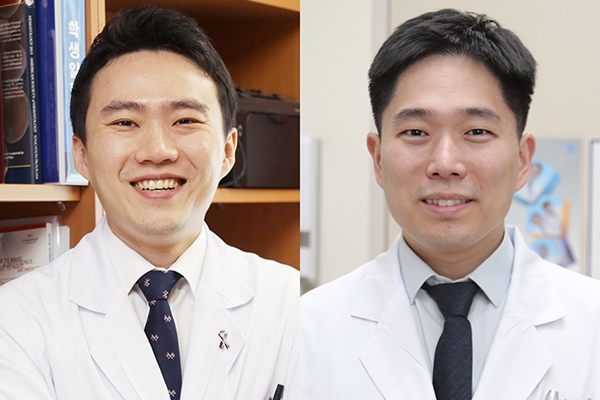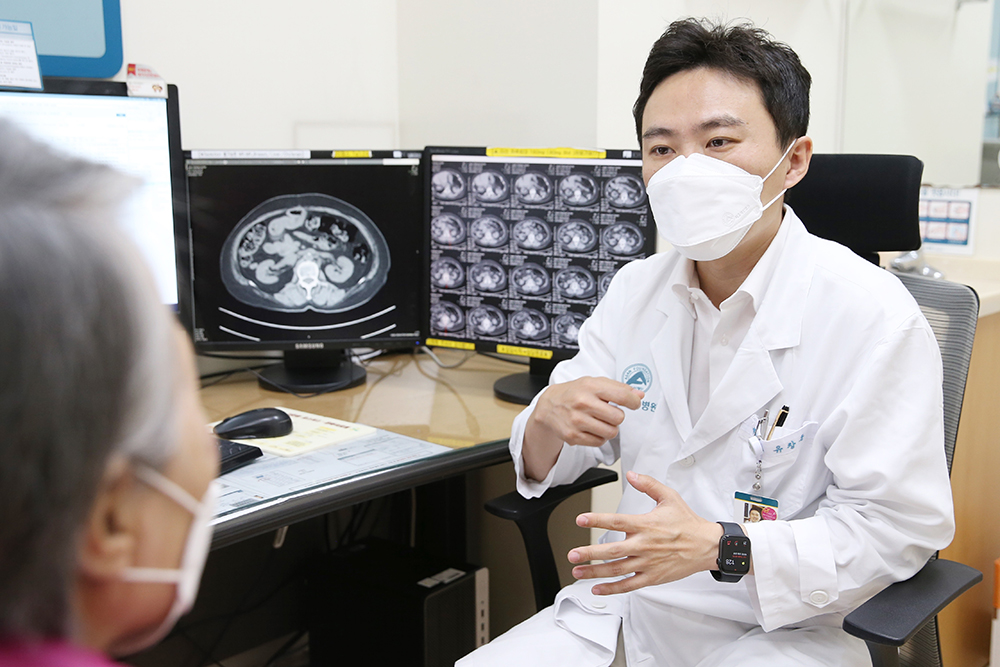-
- Global AMC MENU
- NEWS
- HEALTH
- PEOPLE
- Introduction

▲ (from left) Professor Changhoon Yoo and Professor Hyung-Don Kim of the Division of Oncology at Asan Medical Center
It is reported that three out of ten liver cancer patients still experience rapid deterioration of the disease, even with combination therapy of targeted agents and recently released immune checkpoint inhibitors (ICI). However, a target substance that could improve the effectiveness of immune checkpoint inhibitors for liver cancer has been discovered.
A research team led by Professor Changhoon Yoo and Professor Hyung-Don Kim of the Division of Oncology at Asan Medical Center administered a combination therapy of nivolumab, an immune checkpoint inhibitor, and regorafenib, a targeted agent, to forty-two patients with unresectable hepatocellular carcinoma (uHCC). Their research recently revealed that in fourteen patients whose hepatocellular carcinoma rapidly worsened despite the treatment, a specific protein called TMEM176A/B was expressed more than twice as much.

▲ Professor Changhoon Yoo of the Division of Oncology at Asan Medical Center is consulting a liver cancer patient.
TMEM176A/B is an inflammasome inhibitor, activating an inflammatory response in our body’s immune system. Therefore, overexpression of TMEM176A/B implies that the immune system works less, reducing the effectiveness of immune checkpoint inhibitor therapy. Through further research, the effectiveness of immune checkpoint inhibitor therapy in HCC patients is expected to improve upon new drug development for TMEM176A/B inhibition.
In addition, the response rate of the combination therapy of nivolumab and regorafenib was approximately 31%. This finding marks the potential as a new treatment since the response rate of existing combination therapies for HCC is reported at about 30%.
The research findings were recently published in ‘Nature Medicine,’ a prestigious sister journal of Nature, the globally renowned academic journal.












